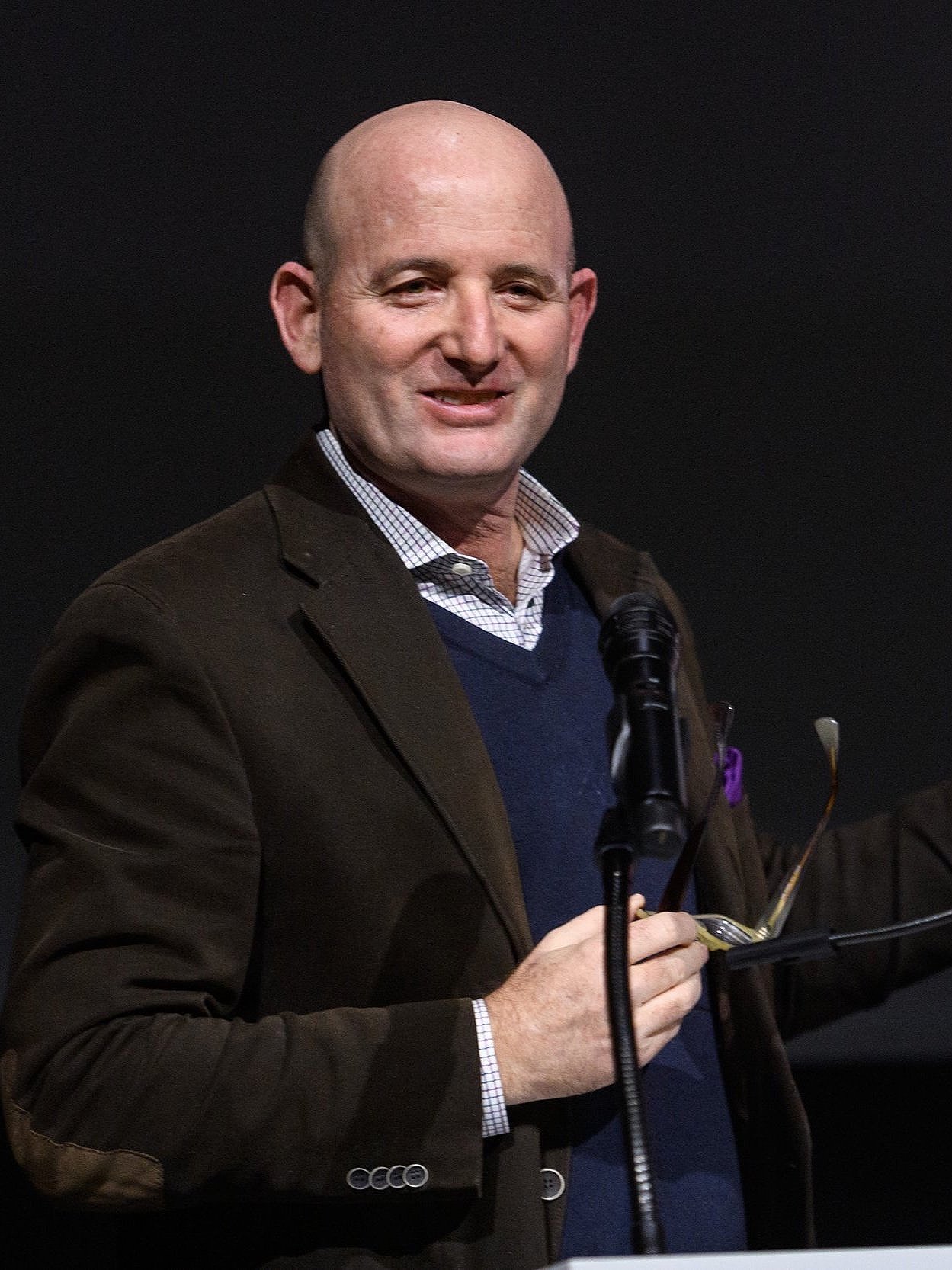Photo: Academy Museum of Motion Pictures
Film historian Noah Isenberg holds the Charles Sapp Centennial Professorship at the University of Texas at Austin, where for nearly half a decade he served as Chair of Radio-Television-Film. Currently, he serves as Executive Director of the University of Texas’s two study-away programs in Los Angeles (UTLA) and in NYC (UTNY), where he is based full-time. He is the author of the Los Angeles Times bestseller We’ll Always Have ‘Casablanca’: The Life, Legend, and Afterlife of Hollywood’s Most Beloved Movie (W.W. Norton, 2017; paperback 2018), which was also named an Editor's Choice by the New York Times and was selected as a Best Summer Book of 2017 by the Financial Times and a Best Film Book of 2017 by the Scotland Herald. The British edition appeared from Faber & Faber in 2017, and a Faber paperback followed in 2020 (earning a spot on the Times of London’s “Best Paperbacks” list). Meanwhile, a Hungarian translation appeared in 2017 from Európa, a 2020 Russian translation from Stanislav Dedinsky, and a 2023 Farsi-language edition appeared from Ashtian Press.
More recently, he edited and introduced the anthology Billy Wilder on Assignment: Dispatches from Weimar Berlin and Interwar Vienna (translated by Shelley Frisch), which appeared from Princeton University Press in 2021 and a paperback edition followed in 2022. It was selected by playwright Tom Stoppard as a 2021 Book of the Year in the Times Literary Supplement and was long-listed for the 2022 Kraszna-Krausz Moving Image Book Award. A Spanish-language edition has appeared from Laertes, an Italian edition from La nave di Teseo, and a Brazilian Portuguese-language edition from DBA Editora; a Chinese edition is forthcoming from the Beijing-based publisher Neo-Cogito Culture Exchange Ltd. At present, he is working on two related projects: a cultural history of the great American sex comedy Some Like It Hot for W.W. Norton and Faber & Faber; and a short interpretive biography of Wilder for the Yale Jewish Lives series at Yale University Press.
His other books include: Edgar G. Ulmer: A Filmmaker at the Margins (University of California Press, 2014; 10th-anniversary paperback edition, September 2024), which the New York Times hailed as “a page turner of a biography” and the Huffington Post selected among its Best Film Books of 2014; Detour (BFI Film Classics, 2008), a book-length study of Ulmer’s acclaimed low-budget film noir; and, as editor, Weimar Cinema: An Essential Guide to Classic Films of the Era (Columbia University Press, 2009), which was selected as a Choice Outstanding Academic Title. In 2016, his introduction to the reissue of Vicki Baum’s bestselling novel of 1929 Grand Hotel appeared from New York Review of Books Classics.
He has been awarded grants and fellowships from the National Endowment for the Humanities (NEH), the Austrian Fulbright Commission, the International Research Center for Cultural Studies (IFK) in Vienna, the Alexander von Humboldt Foundation, and the German Academic Exchange Service (DAAD), among others. He is a fellow at the New York Institute for the Humanities and, in 2015-2016, he received an inaugural NEH Public Scholar research award. In spring 2022, with the support of the Warren Skaaren Film Research Endowment, he served as a faculty fellow at the Harry Ransom Center. Over the years, he has provided numerous video and audio commentaries for The Criterion Collection, Kino Lorber, and the Cohen Media Group. He has guest curated, programmed, introduced screenings, and contributed program notes at Film Society of Lincoln Center, Anthology Film Archive, Arsenal Kino Berlin, the Austrian Film Museum-Vienna, BAMCinématek, Austin Film Society, the Dartmouth Film Society, and the San Francisco Silent Film Festival.
His writing has appeared in The Nation, the New York Review of Books Daily, New York Times Book Review, The New Republic, The American Scholar, Bookforum, Chronicle of Higher Education, The Paris Review Daily, The Daily Beast, Salon, the Times Literary Supplement, Wall Street Journal, Film Quarterly, Film Comment, Cinema Journal, Los Angeles Review of Books, The Criterion Collection, Brooklyn Rail, Moving Image Source, Vertigo, New German Critique, Raritan, Lingua Franca, Dissent, Salmagundi, Partisan Review, and The Threepenny Review. It has also appeared, in other outlets across the globe, in Greek, Spanish, German, Russian, Hungarian, Portuguese, Italian, and Chinese translation. He is a member of the Editorial Board of Film Quarterly and of the New Review of Television and Film Studies, and serves on the Editorial Advisory Board of the British Film Institute’s Screen Studies list and of WeimarCinema.org. Together with Gerd Gemünden, he co-edited a special dossier on the century-long history of German and Austrian film criticism in for New German Critique (#141 fall 2020).
In addition to the posts held at the University of Texas, including a one-year stint as Associate Dean for Professional Programs in Moody College of Communication, Isenberg devoted fifteen years of service to The New School, in Greenwich Village, where he was Professor of Culture and Media and the founding director of the Screen Studies program at the school’s Eugene Lang College of Liberal Arts. From 1995-2004, he taught German and Film Studies at Wesleyan University in Middletown, CT. He’s also been a Visiting Professor of Cinema and Media Studies at the University of Pennsylvania (spring 2017) and Visiting Professor of Film and Media Studies at Dartmouth College (summer 2013, 2014, 2016, 2017), where he spent summer 2015 as a visiting scholar at the Leslie Center for the Humanities. A proud graduate of the University of Pennsylvania (B.A. in European History, 1989), he holds advanced degrees from the University of Washington (M.A. in German Literature, 1991) and the University of California at Berkeley (Ph.D. in German Studies, 1995), graduating Phi Beta Kappa. Fluent in German and conversant in Swedish, he has spent several extended periods—studying, teaching, writing—in Berlin, Vienna, Munich and Stockholm.
